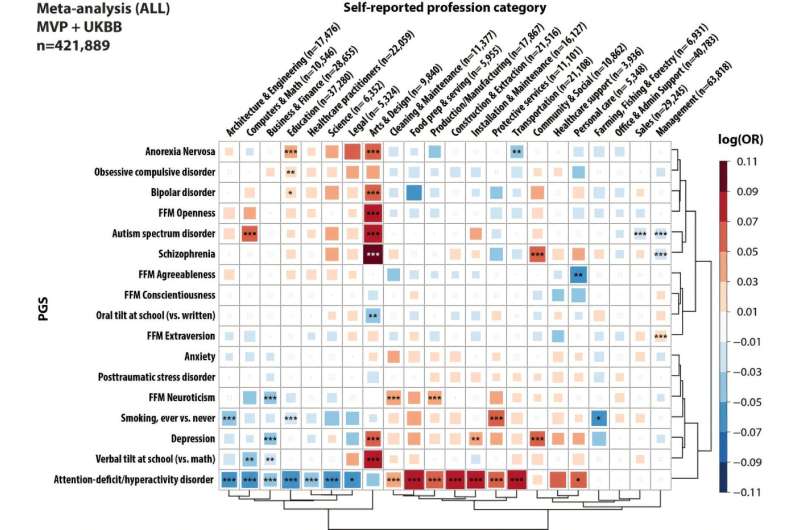Your mental vulnerability can be your greatest career asset.
Data collected from over 400,000 American and British workers has revealed clear correlations between a person’s occupation and their genetic predisposition to several psychiatric traits and disorders, including ADHD, autism, depression, schizophrenia and anxiety.
The findings suggest that these psychological traits may influence how people choose their careers, researchers at the Icahn School of Medicine at Mount Sinai said, although only to an extent.

“Neuropsychiatric disorders are common and highly heritable, yet they remain highly stigmatized,” Georgios Voloudakis, first author of the paper, told Medical Xpress.
“We were inspired to examine whether certain genetic variants that increase the risk of developing these disorders may also provide potential benefits [in these fields]”, Voloudakis continued.
“In addition to looking at potential advantages, we also wanted to explore any disadvantages or barriers that individuals with a higher genetic predisposition to neuropsychiatric traits might face.”
Analysis of 20 different professional fields showed that artists and designers were the most predisposed to any mental health condition, such as anorexia, bipolar disorder, autism, schizophrenia and depression.

Some careers stood out to have only one significant correlation: In addition to creatives, STEM professionals were more likely to be on the autism spectrum. Schizophrenia was more prevalent in the community and social workers. And anorexia nervosa appears more often in teachers and educators.
The seemingly most stable jobs were found in architecture and engineering, health care, agriculture, business and finance, administration and office support, management and sales.
Meanwhile, the jobs most associated with ADHD tended to require the least amount of education, revealing a potential system bias, the researchers noted.
“For example, we found that some associations with attention-deficit/hyperactivity disorder (ADHD) are significantly mediated by educational attainment—a major driver of career paths. This implies that systemic biases in education may disproportionately affect individuals with a higher genetic predisposition to ADHD, even if they never receive an actual diagnosis,” Voloudakis said.
While the findings, published in the journal Nature Human Behaviour, are considered statistically significant, the researchers noted that genetic markers for mental illness potentially accounted for only 0.4% of what determines one’s career choice. Age and sex, they added, played a much more influential role.
“Even if these effects are small, because we studied so many people, we can reliably detect them,” Voloudakis said. “These findings do not mean that we can predict someone’s performance based on their genetics. Rather, they highlight subtle group-level trends. On average, people with a higher PGS for certain traits may be slightly more likely to end up in certain jobs.
“Environmental, social and personal factors continue to play a far greater role in shaping individual outcomes than any single genetic measure.”
#fascinating #link #mental #health #career #choice #revealed #groundbreaking #study
Image Source : nypost.com